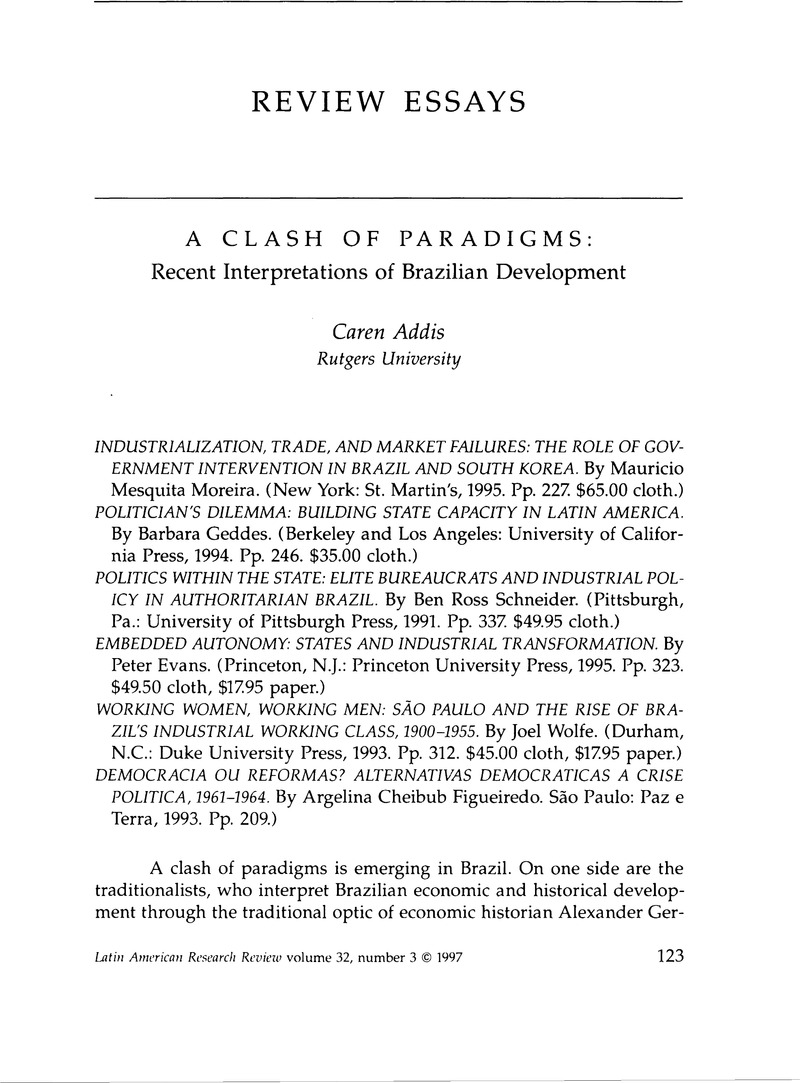Published online by Cambridge University Press: 05 October 2022

1. See Alexander Gerschenkron, Economic Backwardness in Historical Perspective (Cambridge, Mass.: Belknap, 1962).
2. I am not undertaking a critique of functionalist arguments per se. For a more detailed critique of large-scale or Gerschenkronian interpretations of development, see Michael Piore and Charles F. Sabel, The Second Industrial Divide (New York: Basic Books, 1984). The tri-pé refers to joint ventures owned by Brazilian state enterprises, large local firms, and multinational corporations. See Peter Evans, Dependent Development: The Alliance of Multinational, State, and Local Capital in Brazil (Princeton, N.J.: Princeton University Press, 1979).
3. See Samuel Huntington, Political Order in Changing Societies (New Haven, Conn.: Yale University Press, 1968).
4. The proposed reforms consisted of a constitutional amendment permitting expropriation, compensation with public bonds without full correction for inflation, and protection from expropriation of productive lands.
5. See Caren Addis, “Forging Developmental Linkages: Auto Parts Suppliers and the Brazilian Motor Vehicle Industry,” in 40 anos da industria automobilística, edited by Glauco Arbix and Mauro Zilbovicius (São Paulo: Scritta, forthcoming).
6. See Gay Seidman, Manufacturing Militance: Workers' Movements in Brazil and South Africa, 1970–1985 (Berkeley and Los Angeles: University of California Press, 1994).